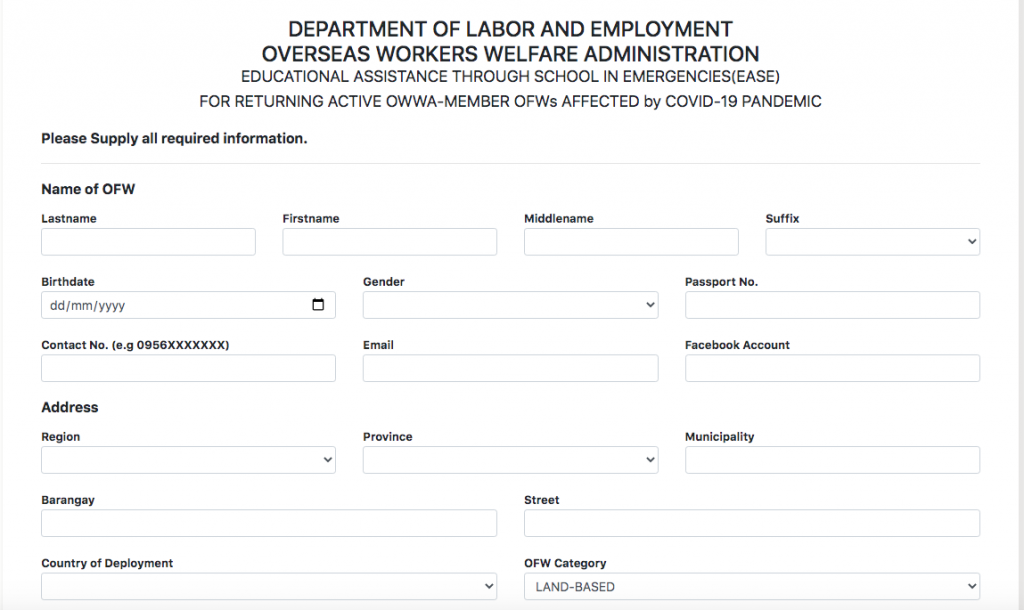The Covid-19 pandemic taught us many things – the importance of having an Emergency Fund or savings, learning how to value non-material things, how to be resilient, and the list goes on. Aside from these, the pandemic taught us how to adjust our lifestyle to be able to save more, especially now that there is a halt in overseas work.
The truth is there are tons of ways on how we can save cash during challenging times like this. In case you are looking for ideas on how to do it, then let this list guide you.
Creative And Effective Ways To Save Cash
- Set a budget – for everything. This is a must. Pandemic or not, having a budget is important because it helps you keep track of how much money goes in and out every month. This will also give you an idea on what expenses you can get rid of for extra cash.
- Grow your own food. Having your own fruits and vegetables backyard will help you in saving money instead of buying them from the market or grocery. Herbs are popular nowadays, but you can also plant calamansi, pechay, ampalaya, and other veggies in your own home.
- Unplug. Did you know that standby appliances could still consume electricity by as much as 10 percent? This could be added to your total electric consumption, which also means higher bill. Therefore, unplug unused appliances since it also promotes electrical safety and prevents the possibility of fire.
- Go for energy-efficient appliances. Even if they are in use, consumption cost will be lower, which means you get to save from electricity, too.
- Be mindful of your water consumption. Turn of faucet when not in use, use a glass when brushing teeth, use a pail when washing your car or watering the plants, and check for any leaks. Simple steps could go a long way when you save water. This will help reduce your water bill as well.
- Reduce alcohol intake. Yes, we all need to unwind but drinking alcohol could eat up a chunk from the income. Limit, if not get rid of it to be able to save more.
- Take advantage of sales and deals. 10.10, 11.11 – these are dates many are looking forward to because of sale and great deals online. If you NEED to buy something, then take advantage of these sales and promos so you could save more. P20 savings or free shipping fee are still savings.
- Let the light in. Opening your windows and letting the sun in is a good way to keep your home well-lighted. Take advantage of it since it saves electricity, too.
- Easy on takeouts. Cooking can be a tedious task but think about this: you get to save more. As much as possible, reduce your food deliveries.
- Always stick to essentials when doing the grocery. It’s tempting to buy the food you see in the supermarket, but do you really need it? As much as possible, stick to essentials. This is where you will appreciate growing your own food because you can skip certain items since you have them on your backyard. This means more savings, too.
- Cancel subscriptions you don’t need. Who doesn’t want entertainment? After all, we all need something to distract us from the negativity in the outside world. Still, if this form of entertainment is charging you with an amount that doesn’t suit your daily needs, then it might be best to cancel that subscription. There are many ways to keep yourself busy without breaking the wallet. But if you really need that streaming, then at least consider sharing. This way, you only get to pay half of the price.
- Make your own coffee. Who needs P180-worth of coffee anyway?
- Keep your bills. Doesn’t it feel good when you see P500 in the drawer that you accidentally forgot? If you have extra bills, then consider “hiding” them. This could come in handy during emergency.
- Don’t forget the coins. Surely, you have lots of coins lying around the house. Put them in a coin bank and use it. You might be surprised to find out that the coins lying around is worth a lot.
These are just simple adjustments but could benefit you in the long run. At this point, we need to think of ways to maximize and stretch the money we have, and these tips could help us become more mindful and careful with our spending. This could lead to bigger savings, too.

